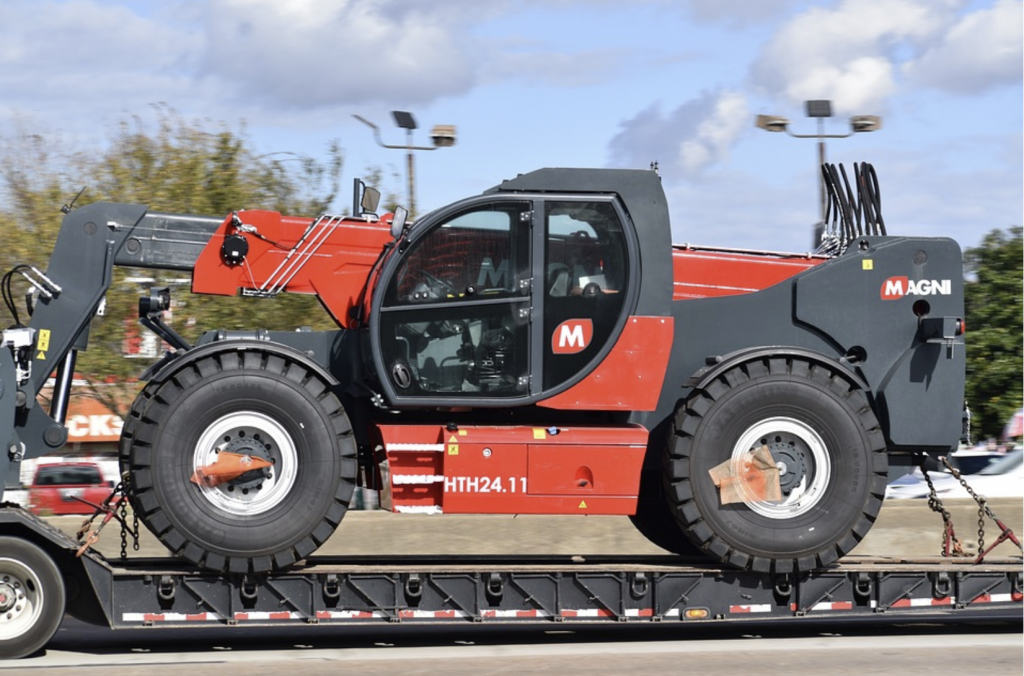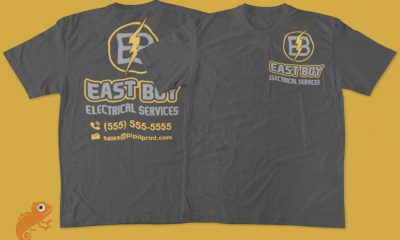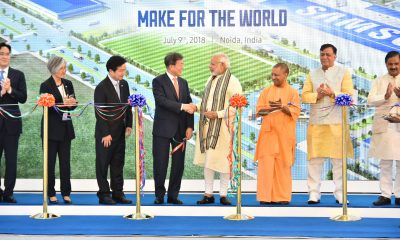Business
Pakistan’s MFN Status to India; Who Will Gain Out of This?

India and Pakistan at Wagah Border. ‘
Photo taken by Kamran Ali
India and Pakistan are the two countries which are involved in regular trade with the world. But when it comes to the neighbourhood, they are hardly maintaining any business relationship with each other. Many times the idea of starting free trade between the two neighbours was discussed. Pakistan had its own ups and downs in declaring India as its most favoured nation, but now the discussion is more about who among India and Pakistan will be benefited more if Pakistan gives Most Favoured Nation status to India.
Do you think Pakistan should give India MFN Status?
India and Pakistan, known in the world as major nuclear rival neighbours, always had tensed relations. Within this rivalry many steps towards peace were taken, some of which were successful and some eventually failed. The dialogues between two nations had almost stopped when Pakistan’s terrorist organization’s involvement in November 2008 Mumbai attacks came in the picture. India maintained a no dialogue policy until Pakistan would take action against the culprits of Mumbai attack.
It was in July 2009 amidst the tourist season when regular tourists from around the world were coming to Egypt in full flow, diving in Sharm el Sheikh which is a beautiful tourist destination facing the Red Sea. There were some really interesting developments happening between India and Pakistan. Indian and Pakistani premiers met in Sharm el Sheikh for the first time after Mumbai Attacks. The outcomes of the meeting were lauded in Pakistan, whereas were chided by Indian analysts, but the most important aspect of the meeting was the resumption of the peace process.
While India has given a good reaction prior to the developments in Pakistan about granting MFN status, Pakistan is giving mixed response. There are analysts who think giving MFN to India is a right decision and there are analysts who have censured this step. The main reason of Pakistan for castigating this step is that India has been very strict to Pakistan in terms of providing its market for Pakistani goods.
India had given MFN status to Pakistan as soon as WTO (World Trade Organization) replaced GATT (General Agreement on Tariffs and Trade) in 1995. The MFN rule requires that a WTO member must apply the same conditions on all trade with other WTO members, i.e. a WTO member has to grant the most favorable conditions under which it allows trade in a certain product type to all other WTO members. “Grant someone a special favour and you have to do the same for all other WTO members.”
Even after India giving MFN status to Pakistan, India’s non-tariff barriers, technical, security and custom standards were so strict that Pakistan couldn’t make most out of it. Pakistan on the other hand, which has comparatively less stricter standards, fear that Indian products will burgeon in their markets challenging their local industries if such status is given to India.
India has complex trade barriers not only for export to India, but also for import from India. Dr. Ashfaq Hassan, Dean of NUST Business School, Pakistan shared his experience when Pakistan imported live animals from India during the shortage of meat in the country. He mentioned that custom office had problem because the animals were not vaccinated, and they had to take the animals all the way back to Delhi to get them vaccinated.
However, Federal Secretary Commerce, Zafar Mehmood, who believes that trade should normalize between the two countries, maintains that India and Pakistan were trading normally between 1947 to 1965, and Pakistan’s export to India was quite high in number compared to India’s export to Pakistan. Regarding non tariff barriers imposed by India, he said they have been working with Indian establishment and Indian commerce minister to sort out all the issues and doubts which can later be problematic for either Pakistan or India.
To make things easy for Pakistani exporters and to make them understand about Indian custom regulation, Pakistan invited Indian trade regulator officers to give presentation to Pakistani exporters in Lahore and Karachi. Pakistan is also interested in signing three agreements with India, which stress on the delay in customs in India, discrimination in evaluation of Pakistani goods in customs, resolving disputes of exporters/importers, recognition of Pakistan’s internationally credited laboratory and standards institute in India.
One of the most important thing that Pakistan will gain from giving India the MFN status will be reduced importing costs of machinery and machine parts, for example parts of textile machines, rail wheel, sugar mill machinery, and electric power generation machinery, etc which India produces on par or even better than international level. These machinery when Pakistan imports from other countries, often “Made in India” equipment items end up arriving on Pakistani ports. These parts are then not allowed to pass the Pakistani customs.
This complexity in trade between India and Pakistan has helped trade mafias whose job is to order parts from India in Dubai or Singapore and then remove “Made in India” markings to sell it to Pakistan on higher rates, causing loss to Pakistan’s industries. If trade is normalized between the countries, Pakistan will not only save the transportation cost but will also get rid of these trade mafias who sell the same thing for higher rates.
Moreover, Pakistan’s textile and textile finishing has high appreciation in India and India is considered as great market for textile industry of Pakistan because of the high quality and similar traditions. Another industry which will gain from giving MFN status to India is Pakistan’s Cement industry. Pakistan produces high quality cement in surplus, that is more than what Pakistan needs. Also, while approximate cost of one bag of cement in Lahore is 100 Rupees, the same bag twenty Kilometres across the border in India costs 500 Rupees, this price difference can be utilized by the Pakistani industries for their benefit.
Various analysts in Pakistan believe that Pakistan’s bank sector also has a good opportunity in India. India is believed to be a major market for banks. Many analysts stressed on the fact that international banks are earning more profit from India than from Pakistan.
Pakistan’s restricted trade with India is an international obligation which has to be resolved, there is also a huge number of population (nearly 50%) in Pakistan’s north eastern and eastern areas which borders with India, this population will gain a lot if trade is normalized. These are some of the main reasons why Pakistan government should consider granting India MFN status.
The two countries share almost similar culture, similar dressing style, similar food and similar language, thus there is a huge opportunity for trade among the two. While India is a powerful economy which can threaten Pakistan’s local industry, Pakistan should not forget that India is also a huge market of one billion people from which Pakistani industries can make huge profit.
Business
How To Future-Proof Your Business With The Right Tools

Running a business is a balancing act between managing today’s tasks and planning for tomorrow’s challenges – and getting that balance right is where you’ll find success. Future-proofing your business might sound like something from a sci-fi show or just one of those words that no one really understands or does, but in this case, it’s a real thing, and it’s a really important thing. You’ve got to be proactive, and the tools and systems you choose now can either set you up for long-term success, or leave you in your competitors’ dust, so you’ve got to get it right. With that in mind, keep reading to find out more.
Think Scalability
The tools you’re using right now might seem – and actually be, in fact – perfect for your current needs, but the question isn’t whether they’re working now (you wouldn’t be using them if they weren’t), but instead it’s whether they can grow with you. In other words, you’ve got to choose tools that won’t fall apart as your business grows, meaning you’ve got to start from scratch with new systems – when you’re growing your business, you’ll have enough on your plate without that as well.
For example, small businesses often rely on simple payment methods in the early days, and although they’re definitely convenient, as time goes on you’ll probably have to rethink things, especially if you’re growing. If you’re still relying on quick fixes, it’s probably time to stop using Zelle for payments because when it comes to business transactions, it doesn’t have the features and security of something more professional.
Automate Where You Can
What’s one of the most precious resources any business owner can have? The answer is time. So if time is so precious, why are you wasting it on repetitive tasks when you could be doing other things if you put some automation in place? Just think of all the time you’d free up if you automated your invoicing, social media posts, email campaigns, and so on – what could you do to make your business better with the time you save?
Not only does automation save time, but it also means there’s a lot less chance for human error to creep in, and that’s got to give any business owner lots of peace of mind and reduce their stress levels – and doing that is always a positive.
Stay Ahead On Cybersecurity
You might have noticed a few (and possibly the numbers are growing) headlines recently about big data breaches – it basically means that customers’ sensitive data has been accessed by hackers, and when that happens, those customers can have issues with identity theft, lost money, compromised passwords, and more.
That’s why it’s so important to invest in good cybersecurity if you want to future-proof your business and make it strong and trustworthy today. Strong firewalls, secure payment systems, data encryption, cloud storage, and good cybersecurity training for your team can go a long way to protecting your business and your customers, meaning it’s going to last a lot longer and get a good reputation too.
Business
What are EDC products, and why should you always have them?

EDC gear includes products that have become indispensable for improving one’s quality of life. These are the tools and implements that can solve everything from simple daily tasks to being vital objects capable of saving lives.
Regardless of the lifestyle you lead, there are countless situations in daily life where you need a tool or item that helps resolve inconveniences or facilitates completing tasks. This is where the category of products known as EDC (Every Day Carry) comes into play. EDC includes a variety of items that are necessary in unexpected moments.
For these tools to truly be useful in daily life, they must be durable and of high quality. For this reason, it is highly recommended to choose selected EDC gear by Onibai.com, an Italian brand with extensive experience in selling this kind of exclusive everyday carry equipment. The brand offers a wide selection of well-crafted, durable products that meet the demands of everyday carry needs.
Knives: essential for multiple situations
Knives, or EDC blades, are among the most essential tools in any EDC kit. In fact, they are often seen as a symbol of someone who is prepared, practical, and functional. Whether it’s opening packages or envelopes, cutting cords or ropes, or other simple daily tasks, a suitable knife can make these activities much easier. Additionally, a good knife can serve as a means of self-defence in case of sudden attacks.
Over time, the design of knives has evolved and diversified. Daily-use knives are now specifically designed for lighter cutting tasks, such as those mentioned earlier. Tactical knives, on the other hand, are made for more intense scenarios. They are stronger and reinforced, often designed for high resistance or self-defence situations.
Urban knives, tailored for city dwellers, are built to meet the needs of individuals in modern environments, so they often feature sleek finishes that complement contemporary lifestyles. Another popular category is multi-tool knives, which are designed to handle a variety of tasks. These knives have the resilience and sturdiness of a 3-inch blade while also fulfilling the precision requirements needed for various EDC tasks.
Other essential EDC products
In addition to knives, there is a wide range of other EDC products that are indispensable in daily life. One of these is, undoubtedly, a reliable wallet. A well-designed wallet needs to be robust enough to withstand daily use while keeping essential items like bank cards, identification documents, and more, safe and in good condition.
Flashlights are also vital components of any EDC kit. These tools are incredibly useful in many situations, particularly in dark environments or emergencies where additional lighting is critical. When selecting a torch, factors such as battery life, size, portability, and brightness should all be taken into account.
Purses, fanny packs, or backpacks also play an essential role in everyday carry. These items are where people store the various EDC products described above. They usually come with several compartments and are available in different sizes and materials, depending on the person’s style and daily activities.
Other items that are part of an EDC kit include beads and cords, Velcro patches, bottle openers, multi-functional key organisers, as well as durable, long-lasting, and stylish pens that adapt to any situation and lifestyle.
An interesting category of EDC products includes stress-relief toys for adults, which provide a means of alleviating daily stress. Popular options in this category include fidget spinners, fidget sticks, stress-relief sliders, poker chips with buttons, and mechanical coins. These items not only serve as a source of relaxation but can also be a fun and effective way to manage anxiety and tension during the course of a busy day.
In conclusion, EDC gear is not just a set of tools but a lifestyle that reflects preparedness, practicality, and a proactive approach to the uncertainties of everyday life. The more equipped you are, the more empowered you will feel in facing the challenges that arise.
Business
The importance of telescopic handlers: innovation and efficiency in load handling
In the field of logistics, efficiency and safety are key aspects for the success of any project. Machines and tools must handle heavy loads and perform complex tasks with precision. In this sense, Magni TH telescopic handlers are the perfect option.

Telescopic handlers are lifting equipment that combine the capabilities of a crane and a forklift, featuring a telescopic arm that can extend and retract to reach considerable heights and access areas that may be difficult to reach manually. Thanks to this versatility, they become essential tools for a wide range of applications, indispensable in multiple sectors.
Today, the telescopic handler industry is constantly evolving, with technological innovations that enhance their functionality. One of the leading companies in this field is Magni TH, renowned for offering high-quality, efficient machinery with a focus on innovation and sustainability. This ensures that their telescopic handlers not only meet current demands but are also prepared for future challenges.
What does Magni TH offer?
Magni TH stands out in the market by offering a wide range of telescopic handlers that adapt to a long list of specific needs. Among their most notable models are fixed telescopic handlers (TH), rotating telescopic handlers (RTH), and heavy-duty telescopic handlers (HTH). They also offer aerial platforms, ranging from fixed models to articulated and rotating versions.
Furthermore, Magni TH machinery is widely recognised for its high-quality standards, due in large part to the selection of top-class raw materials. This attention to detail not only ensures compliance with market safety standards but exceeds them, guaranteeing that every machine is 100% reliable and durable.
Magni TH’s manufacturing process is another aspect that sets them apart. The company combines advanced industrial techniques with a craftsmanship approach, allowing for continuous innovation and enabling them to remain at the forefront of the market. This combined approach not only improves production efficiency but also allows for greater customisation.
In addition to their impressive product line, Magni TH is committed to providing proper advice and training to its customers. The company offers detailed descriptions of its products and services, ensuring that customers fully understand the capabilities and strengths of each machine model.
Magni TH also stands out for its focus on sustainability, reflected in the energy efficiency of each of their machines. This not only maximises user productivity but also ensures environmental responsibility at all times.
Innovation and safety
The use of innovative, high-quality telescopic handlers, like those manufactured by Magni TH, is essential for significantly improving operational efficiency across various sectors. These machines, thanks to their precision and speed in executing complex tasks, help reduce the time needed to complete projects, thereby increasing the overall productivity of companies.
On the other hand, safety is another key aspect when using high-quality telescopic handlers. These machines are equipped with advanced safety systems, such as stabilisers, enclosed cabins to protect operators, and load control systems, ensuring operations are carried out efficiently and reliably. Moreover, their ability to handle loads with precision and care is crucial for ensuring the integrity of products, significantly reducing the risk of damage during transport and handling. This is particularly important in sectors where product integrity is critical to maintaining high-quality standards.
At the same time, the use of innovative telescopic handlers can also enhance a company’s competitiveness. Investing in high-quality equipment allows them to provide services with greater efficiency and safety, helping them stand out in the market. Ultimately, investing in this type of telescopic handler can be considered a strategic decision that can have positive long-term impacts on the sustainability and growth of a company, as adopting advanced technologies demonstrates a commitment to excellence and proactivity, keeping companies at the forefront and allowing them to adapt easily to the many changes in the market.
Versatile Applications of Magni TH
Magni TH telescopic handlers are known for their versatility and ability to adapt to a wide range of applications. Unlike other companies that focus on specific sectors, Magni TH offers its products to any industry that requires load handling solutions. For example, in the agricultural sector, Magni TH telescopic handlers are key tools for tasks such as handling hay bales, transporting fertilisers, and loading livestock. Additionally, their ability to navigate uneven terrain and lift large volumes of material are essential advantages on farms and agricultural operations.
Likewise, the maritime sector benefits greatly from the versatility of Magni TH telescopic handlers. These machines are ideal for storage and cargo handling on vessels and ports, as well as for small routine maintenance operations.
In construction, Magni TH telescopic handlers are one of the most widely used tools, enabling the lifting and positioning of heavy materials such as bricks, cement, and beams. Regardless of the size of the construction project, their ability to operate on difficult terrain and reach high altitudes makes them ideal for any occasion, improving productivity and minimising the risk of accidents.
Finally, telescopic handlers are also widely useful in the industrial and mining sectors. In industry, these machines are employed for material handling in factories and warehouses, while in mining, their robustness, and load capacity make them a perfect option for working in extreme conditions.
-

 Travel11 months ago
Travel11 months agoImmerse Yourself in Nature: Explore Forest Bathing with a New Guidebook
-

 Europe10 months ago
Europe10 months agoBarcelona and Athens: cities that will leave an everlasting impression
-

 Health10 months ago
Health10 months agoExperience in clinical quality: What is it, and why is it important?
-

 Technology11 months ago
Technology11 months agoHow Virtual Fly Elevates the World of Flight Simulators
-

 Business6 months ago
Business6 months agoServiceNow Development Consultancy: Business Process Automation as Disruptive Technology
-

 Environment7 months ago
Environment7 months agoThe Future of Fashion: The Rise of Eco-Conscious Brands in the Luxury Market
-

 Business9 months ago
Business9 months agoScreen Printing Services: A Beginner’s Guide to Avoiding Mistakes and Maximizing Your Investment
-

 Travel7 months ago
Travel7 months agoEnjoy a luxury holiday in Zanzibar


















